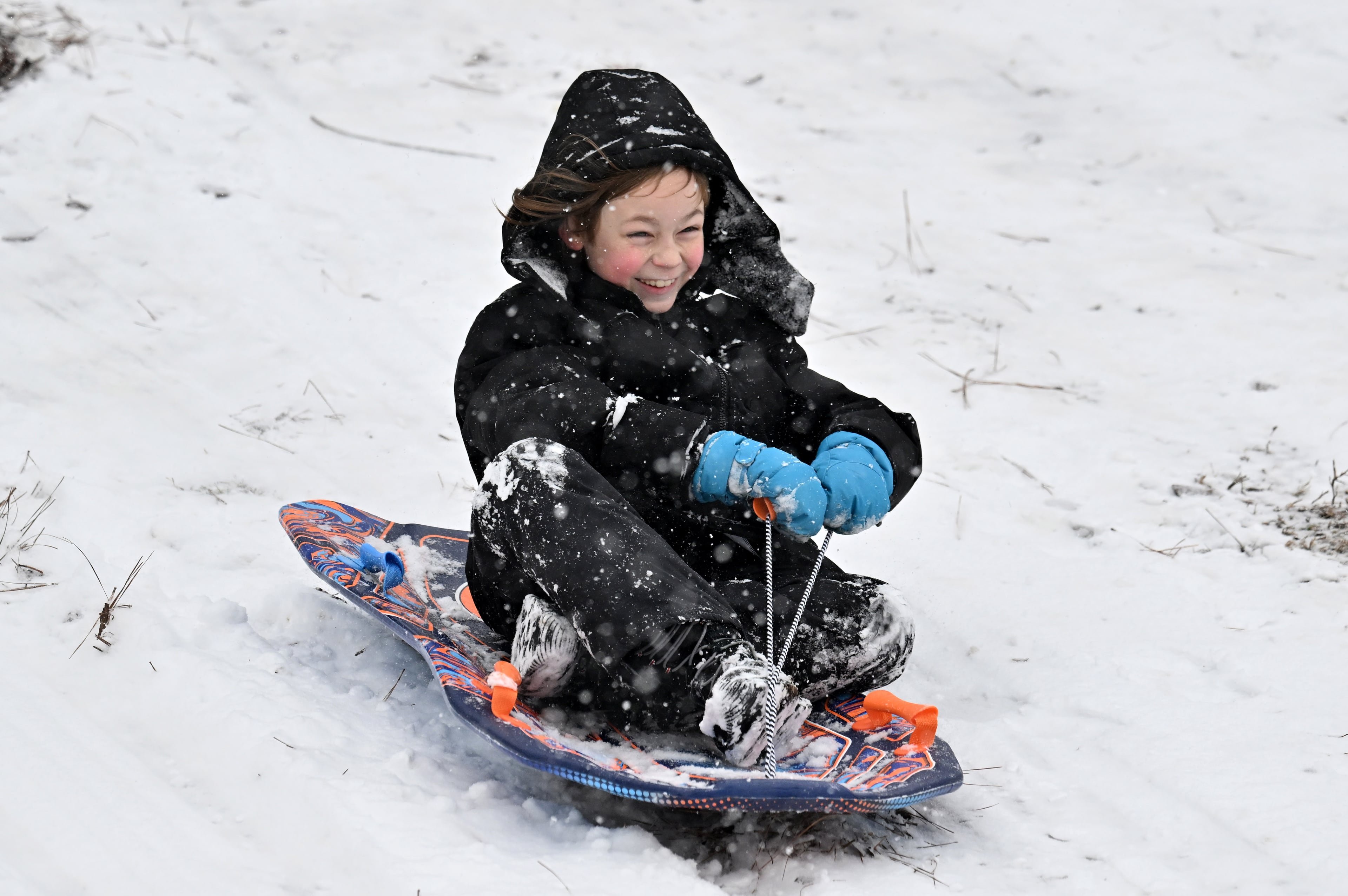Weekend cold front means brisk days, chilly nights
A bold winter storm sweeping the country will drag a cold front through South Florida tonight leaving abnormally cool temperatures that could drop into the 40s early Sunday.
Ahead of the front will be showers and clouds with the National Weather Service in Miami calling for a 40 percent chance of rain in Palm Beach County tonight.
Those showers could come with some thunderstorms, according to forecasters.
But as the front chugs into the Florida Straits, north winds are expected to rush in, clear out clouds, and pull dry, cool air through the Peninsula.

This Weather Prediction Center map shows the cold front’s location at 8 p.m. tonight (Friday).
Saturday’s high temperature is forecast to reach 70 degrees, about 4 degrees below normal for this time of year.
By Sunday morning, the mercury could read in the high 40s in coastal Palm Beach County with cooler temperatures inland. The normal overnight low for mid-January is 57 degrees.

Sunday’s high temperature is unlikely to reach 70.
The storm, the second major winter disturbance of 2018, is expected to bring rain, snow and ice to the northeast into Saturday morning.
AccuWeather is warning that frozen ground in some areas is causing rain to run off quickly and raising the concern for flooding.
“There is also a risk of roof collapses in New England, where up to a couple of feet of snow remains and the heavy rain adds more weight,” according to AccuWeather senior meteorologist Dave Samuhel.

For South Florida, the cooler temperatures may lead to another round of cold-stunned iguanas.
The cold-blooded reptiles, along with other invasive species such as knight anoles, can become paralyzed when temperatures reach much below 50 degrees.
It would take a longer run of cold days to do kill the non-native nuisance, which eat landscaping, dig burrows that undermine foundations and produce droppings that can carry salmonella bacteria.
That happened in January 2010 when South Florida experienced nearly two weeks where the temperatures reached into the 30 to 40-degree range.
Not only was a substantial portion of the iguana population killed, Burmese pythons also died.
“Many pythons were reported dead, floating in the Everglades,” a statement from FWC said. “Although the iguana or python population may have some mortality occur, the length of time of cold weather may not be enough during this cold snap to make a significant difference.”
If you haven't yet, join Kim on Facebook , Instagram and Twitter .

